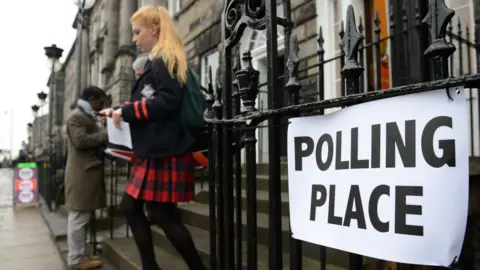The UK government is contemplating a significant change in electoral policy: the possibility of lowering the voting age to 16 for the upcoming general election. Proponents of this policy, including several ministers, argue that enabling younger individuals to participate in elections could enhance democratic engagement and give a voice to youth regarding consequential decisions that shape their future. This argument emphasizes the belief that young people should have a say in governance, especially as many issues directly impact their lives, such as education, climate change, and future job opportunities.
However, this initiative has sparked a debate, particularly regarding which political parties might stand to gain from such a shift in voting regulations. Critics of the proposed change posit that the Labour Party, traditionally favored by younger voters, could significantly benefit from the enfranchisement of 16 and 17-year-olds. Data suggests that younger demographics tend to lean towards left-wing politics; consequently, there are concerns that allowing this age group to vote may lead to a disproportionate advantage for Labour.
Deputy Prime Minister Angela Rayner has publicly dismissed insinuations that the motive behind lowering the voting age is to secure votes for Labour. Instead, she advocates for the initiative as a move to bolster democratic participation among young people. Nevertheless, while Labour may currently enjoy strong support among younger voters, the dynamics of how these sentiments will translate into actual votes remains uncertain. Recent YouGov polls revealed that among 18 to 24-year-olds, Labour polled at 28%, the Green Party closely followed at 26%, and the Liberal Democrats garnered 20%. Meanwhile, the Conservative Party secured just 9%, and Reform UK captured 8%.
A critical point raised by political analysts is the relative lack of targeted polling on the 16 and 17-year-old demographic. While it’s likely they would mimic the voting tendencies of their older counterparts, available statistics and trends do not offer conclusive evidence concerning how this specific age group would behave in an election context. Anthony Wells, the head of European political and social research at YouGov, notes that variables such as public discontent with Labour as an incumbent party could sway young voters differently, particularly as the next election, projected to occur in four years, approaches.
Political fragmentation presents additional challenges, with various smaller parties potentially siphoning votes away from Labour. One example is Reform UK, which, despite its traditional appeal to older demographics, has begun targeting younger audiences via social media platforms like TikTok, where its leader Nigel Farage has amassed over a million followers. Additionally, while these outreach efforts may cultivate an emerging base, the actual conversion of social media interactions into votes remains ambiguous.
On the left, Jeremy Corbyn’s new political formation could attract disaffected voters from the Labour Party, just as the Green Party and the Liberal Democrats stand to benefit from the increased pool of young voters. If young individuals find a connection with the policies and charisma of newer political entrants, the reshaping of party dynamics could occur swiftly.
Moreover, research from countries that have previously lowered the voting age indicates there might not be substantial electoral consequences. In the UK, individuals aged 16 and 17 represent a mere 2.8% of the eligible voting population; hence, their impact on overall election outcomes may be minimal. Additionally, younger voters traditionally exhibit lower turnout rates, making it plausible that this demographic may not significantly influence future electoral results.
Political researcher Luke Tryl suggests that the effects of new young voters might be felt more acutely in tightly contested constituencies where small shifts in voter turnout could tip the balance of power. As the political landscape continues to evolve with a multitude of parties making their mark, every vote may indeed count, highlighting the nuanced implications of lowering the voting age.








